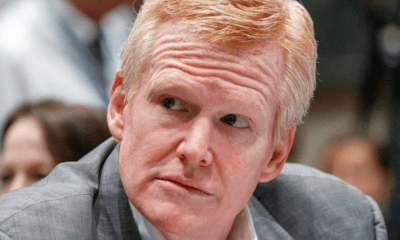While many people dream of being rich, the reality of wealth often comes with unexpected challenges. Beyond the luxury and convenience, there are pressures, responsibilities, and pitfalls that can take a toll on one’s life. From strained relationships to constant scrutiny, being wealthy isn’t always as glamorous as it seems. Here are 21 downsides of being rich that most people are ignorant of.
Constant Scrutiny and Judgment

Shutterstock
Wealthy individuals often face scrutiny from others who judge how they spend, invest, or donate their money. This constant observation can feel invasive and exhausting. Every decision becomes a subject of public opinion, leading to stress. The pressure to meet expectations can diminish the enjoyment of wealth.
Difficulty Trusting Others

Shutterstock
Rich individuals often struggle to discern whether people value them for who they are or for their money. This can lead to a lack of genuine relationships and feelings of isolation. Even close friendships can be clouded by doubts about true intentions. Building trust becomes a significant challenge.
Family Tensions Over Money

Shutterstock
Wealth can create tensions within families, especially when it comes to inheritance, loans, or unequal distributions. Relatives may develop unrealistic expectations or harbor resentment. Managing these dynamics requires clear communication and strong boundaries. Without them, relationships can become strained or fractured.
High Levels of Stress

Shutterstock
Managing significant wealth often comes with immense stress, including decisions about investments, taxes, and philanthropy. The fear of losing money or making poor financial choices can be overwhelming. Wealth doesn’t eliminate stress—it often amplifies it. Finding ways to decompress becomes essential for mental health.
Loss of Privacy

Shutterstock
The wealthy often lose their ability to live anonymously, especially if their wealth is public knowledge. Strangers, media, or even neighbors may invade their privacy. Constant attention can make it difficult to enjoy a simple, peaceful life. Protecting personal space becomes a constant battle.
Feelings of Isolation

Shutterstock
Wealth can create a divide between the rich and their friends or community, leading to feelings of isolation. People may feel intimidated or assume the wealthy can’t relate to everyday struggles. This disconnect can leave rich individuals feeling lonely. Finding a support network becomes crucial.
Greater Legal Risks

Shutterstock
Being wealthy often makes individuals a target for lawsuits or frivolous legal claims. People may try to exploit their wealth through baseless accusations. Navigating these risks requires hiring expensive legal teams and staying vigilant. This constant fear can be draining and frustrating.
The Pressure to Keep Up Appearances

Shutterstock
Wealth often comes with societal expectations to maintain a certain lifestyle or image. The pressure to buy luxury items, host lavish events, or appear successful can be exhausting. This performance can feel inauthentic and overwhelming over time. Breaking free from these expectations is a challenge many wealthy people face.
Potential for Overspending

Shutterstock
Having access to significant wealth can lead to overspending on unnecessary or extravagant items. This behavior can diminish wealth over time, especially if earnings don’t keep pace. Learning to manage spending and prioritize long-term goals is essential. Without discipline, wealth can disappear surprisingly quickly.
The Burden of Philanthropy

Shutterstock
Wealth often comes with societal pressure to donate generously, which can feel like an obligation rather than a choice. Deciding where to allocate donations or how much to give can be overwhelming. Balancing personal goals with philanthropic expectations requires thoughtful planning. The emotional toll of giving is rarely discussed.
People Expect Constant Generosity

Shutterstock
When you’re wealthy, friends, family, and even acquaintances may expect financial help or extravagant gifts. Constantly being asked for loans or support can feel draining and make it hard to say no. This pressure can lead to strained relationships or resentment. Clear boundaries are essential to manage these expectations.
Challenges Raising Grounded Children

Shutterstock
Raising children in a wealthy environment can make it harder to teach the value of money and hard work. Kids may develop a sense of entitlement or fail to appreciate the effort behind wealth. Instilling humility and responsibility requires extra effort for wealthy parents. Balancing privilege with important life lessons is a significant challenge.
Risk of Losing Perspective

Shutterstock
Extreme wealth can lead to a detachment from everyday struggles and realities faced by others. This lack of perspective may result in misunderstandings or poor decision-making in personal and professional relationships. Staying grounded requires conscious effort and self-awareness. Without it, wealth can create an unrelatable barrier between individuals.
Wealth Can Magnify Personal Problems

Shutterstock
Wealth doesn’t solve personal issues—it often amplifies them. Problems like addiction, anxiety, or unhealthy relationships can worsen when combined with unlimited resources. Money can enable harmful habits instead of addressing the root causes. Seeking professional support is essential for maintaining overall well-being.
Overwhelming Financial Decisions

Shutterstock
Managing large sums of money requires navigating complex financial decisions about investments, taxes, and estate planning. These decisions often require expert advice and significant time. The responsibility of preserving and growing wealth can feel overwhelming. Mistakes can have costly consequences, adding to the pressure.
Higher Costs of Living

Shutterstock
Wealth often comes with an elevated lifestyle, leading to higher costs for housing, transportation, and entertainment. These expenses can quickly add up and create financial stress, even for the rich. Scaling back can feel difficult due to societal expectations. Learning to live within means—even when wealthy—is crucial for sustainability.
Fear of Being Taken Advantage Of

Shutterstock
Wealthy individuals often worry about being exploited by friends, employees, or even strangers. This fear can lead to paranoia or overly cautious behavior, which may harm relationships. Navigating this risk requires discernment and building trust with a close circle of reliable people. Staying vigilant is a constant necessity.
Struggles with Genuine Happiness

Shutterstock
While money provides comfort, it doesn’t guarantee happiness. Wealth can sometimes mask deeper emotional issues or create new ones, like emptiness or dissatisfaction. Pursuing meaningful relationships, hobbies, and personal growth becomes essential to finding fulfillment. True happiness often lies beyond material possessions.
The Guilt of Wealth

Shutterstock
Some wealthy individuals struggle with guilt, especially when they see others struggling financially. This guilt can lead to feelings of inadequacy or an obligation to give away large sums. Balancing personal enjoyment of wealth with helping others requires careful thought. Managing this guilt is an emotional challenge many face.
Difficulty Letting Go of Wealth

Shutterstock
Wealth often creates a fear of losing what’s been gained, leading to risk-averse or controlling behaviors. This fear can hinder decision-making or prevent individuals from enjoying their success. Learning to embrace calculated risks and live fully is essential for overcoming this challenge. Holding onto wealth too tightly can limit its benefits.
Impact on Personal Identity

Shutterstock
For some, wealth becomes closely tied to their sense of self-worth. Losing money or public recognition can feel like a personal failure. This dependency on wealth for validation can lead to emotional instability. Focusing on intrinsic values rather than material success helps build a healthier sense of identity.
Conclusion

Shutterstock
While wealth provides opportunities and convenience, it also brings unique challenges that many don’t anticipate. From strained relationships to privacy concerns, the realities of being rich can take an emotional and mental toll. Understanding these downsides helps provide a more balanced view of wealth. Ultimately, true happiness often lies in connection, purpose, and balance—not just money.






















































